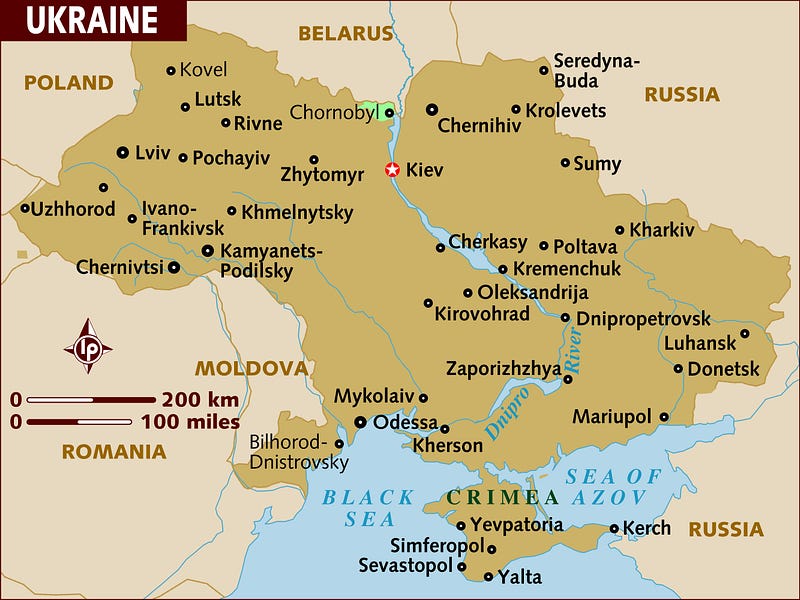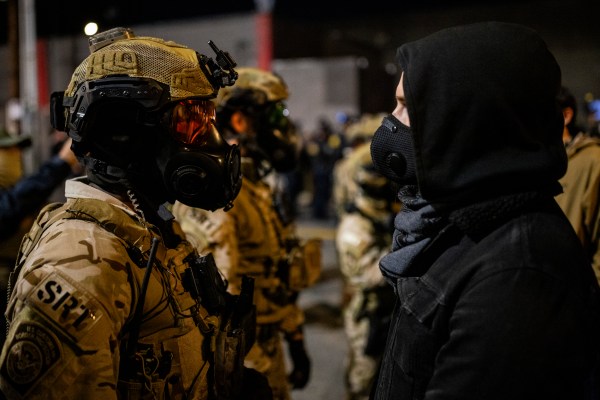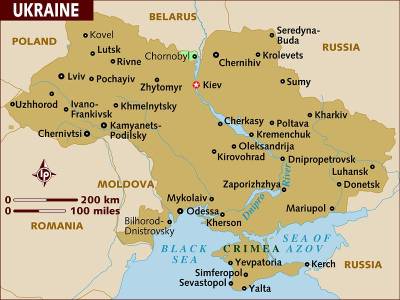Kherson is the largest Ukrainian city that Russia has captured since 2015, and all eyes are on the counteroffensive that Ukraine announced on Monday. It’s too early to know how it’s going or how it will play out, but Russian commentators are already trying to downplay the Ukrainian effort.
In February and March 2022 Russian forces stormed north out of Crimea and rapidly captured the entire southern portion of the Kherson oblast (province), crossed the Dnieper river that bisects the province, and quickly captured Kherson city. Russian columns struck north toward the city of Mykolayiv, another coastal city about 40 miles away. But then the offensive stalled, Mykolayiv held, and Russian forces had to retreat back to the countryside surrounding Kherson city and a wide strip of territory hugging the Dnieper River to the northeast.
This is where the lines have stayed in Kherson, more or less, for months. While Russian troops backed off of Kyiv and Chernihiv in the north and re-concentrated on eastern Ukraine, they stayed put around Kherson, and may have even been reinforced. A few months ago, I predicted that Putin might cut his losses around Kherson, pull out to the “left” bank of the Dnieper, and destroy the bridges over the river in order to prevent any Ukrainian attacks. This would have allowed the Russian army to refocus even more of its resources on eastern Ukraine. That didn’t happen. I suspect the Russians were unwilling to give up their prize city and/or were still planning on a renewed offensive across southern Ukraine and didn’t want to lose their only bridgehead. Instead, it was Ukrainians who started attacking the bridges when they got the American HIMARS systems in July.
If the Ukrainians can manage to destroy these bridges permanently and prevent Russia from maintaining pontoon bridges across the river, they could achieve logistical superiority in this part of Ukraine. Russia might have more rocket launchers and tanks and men defending Kherson than Ukraine can use to attack it, but the Russians will run out of ammunition, fuel, and food long before the Ukrainians do. It is unclear just how many Russian troops are left on the wrong side of the river, but if the Ukrainians can pull off this offensive it could result in major losses of already underresourced Russian troops, and maybe even a significant number of prisoners.
As David French has written, the fog of war is thick right now, but we outside observers can get some clues about what is really going on based on how Russian commentators respond to news about Kherson.
The possibility that Russian control of northern Kherson is in serious jeopardy was immediately recognized by Igor Girkin. Girkin, aka Strelkov, is a retired FSB officer who was once the leader of Russian irregular forces in eastern Ukraine. He was fired after the shoot-down of Malaysian Airlines Flight 17 and the intervention of Russian regular troops into the fighting to prevent a total collapse of the “separatist” position in the late summer of 2014. He has since sat on the sidelines and sniped at the incompetence of those who succeeded him in trying to destroy Ukraine. On Monday he reported via his Telegram channel that “the picture of the enemy’s offensive is basically clear. - The encirclement and defeat of our grouping east of Kherson between the Dnieper and Ingulets [river].” (The Ingulets is a small river in northeast Kherson that was close to the Russian frontlines.) According to his information, Ukrainian forces didn’t attack from the bridgehead over the Ingulets as had been expected, but rapidly built a pontoon bridge and attacked from a different direction.
There are other Ukrainian attacks happening elsewhere along the Kherson front, but Girkin believed that this one, near the town of Andriivka, is the main effort. This area is about 30 miles northwest of the dam at Nova Kakhovka, the northernmost crossings over the Dnieper in Kherson oblast. Strelkov also related that the Ukrainians are using a lot of missiles in this attack: “They aren’t economizing, they are already hitting infantry.”
Those still on the Kremlin dole gave a very different assessment of the counteroffensive. A commentator for one of the main Russian TV channels, Vesti, declared that “The Attack of the Ukrainian Armed Forces on Kherson Turned out to be a Fake.” Sergey Aksyonov, the head of the Russian occupational government in Crimea, posted on Telegram on Monday that any talk of a Ukrainian “offensive” in Kherson was just “another fake of Ukrainian propaganda.” According to him there was not any substantial attack, but a ruse-attack directed at the West: “Ukrainian units are suffering severe losses both in the south and in all other directions. But the Western masters need them to be active, so a gang of drug addicts and criminals is doing what they do best: make imitations and fabrications.” That is, Ukraine is deliberately throwing men into a suicide mission just to please its Western masters, a variant on a typical theme in Russian propaganda.
Another pro-Russian Ukrainian commentator, Igor Dimitriev, wrote in a Telegram comment, which was picked up by a couple of Russian propaganda outlets, that the offensive was a feint, designed to draw away Russian resources and distract Russian attention: “Why did Ukrainian speakers make constant announcements of a future counteroffensive? I suppose in order to force the Russian command to transfer more battalion tactical groups to the right bank of the Dnieper, where they will face logistical problems. Bridges are destroyed, any transfer of troops turns into a special operation.” (Here he is correct about two things: 1) that this counteroffensive has been telegraphed in the Ukrainian and Western press for months, and 2) that any Russian troops on the wrong side of the Dnieper face potentially serious logistical issues.)
Could this be a feint? Sure. Or a probe? Or a real Ukrainian offensive as promised? The Russian chorus that this was all overblown or deliberate Ukrainian propaganda was deflated a bit with the official announcement of an evacuation from the city of Nova Kakhovka by the local occupation authorities. Still, the collaborators are trying to put a brave face on it. Kirill Stremousov, head of the Russian puppet regional administration, told RIA Novosti that “Western countries are pushing Kyiv to aggravate the situation in the direction of the Kherson region.” He also told TASS that “residents of the Kherson region, who left the region earlier, are returning in large numbers” Some sharp-eyed sleuths have shown that while Stremousov talks optimistically about the situation in Kherson, he is making video addresses from the Marriott hotel in Voronzezh, a Russian city almost 450 miles away from Kherson.
If this is indeed the decisive assault to push Russia out of northern Kherson oblast, that itself is no guarantee of success. I am reminded of some of the initial Ukrainian attacks against the Russian irregulars in 2014: Units could push past the thinly armed “separatists” but were then attacked by Russian artillery firing from inside Russia. Russian artillery systems on the other side of the Dnieper River, and almost the entire area of northern Kherson currently occupied by Russia would be within range of Russian long-range artillery in southern Kherson if it was re-captured. A Ukrainian offensive could stall out because of Russian resistance or lucky Russian gunnery: It is much harder to attack than defend.
The morale of Russian troops on the wrong side of the Dnieper will likely be a decisive factor, and surely Ukrainian psychological operations teams are hard at work to convince them there is no escape if they don’t flee now. It might even be too late. Ukrainian military intelligence released a purported recording of a phone call between a Russian man and a Russian woman. (Translated and captioned here by wartranslated.com.) The woman appears to be speculating about how to get sent on leave from the army and then discharged. The man responds in despair: “The bridges are all f---ed, all of them. You can’t get in or out. They are thinking about something and all the leaves have been canceled. There is zero moment.” The woman replies that there is one bridge open, the “one that starts with ‘A’” (the Antonivskyi Bridge—the main highway bridge just to the east of the city of Kherson.) The man reiterates: “Yes, that is the one that is completely f---ed.” When the woman tries to say that they had patched it up he replies again “Its not fucking restored, it broke in half and fell into the f---ing river.”
If the offensive splutters or is a feint, I suspect Russia will glory over Ukraine’s inability to take any significant ground back even under these favorable conditions. If Russia is forced to retreat, then surely its Kherson adventure could be called another “brilliant feint” to distract Ukraine from Eastern Ukraine, just like Russia’s attacks in the north were. If Ukraine gains ground and captures Russian troops, then I suspect Russian propaganda will blame the Americans and the Brits for masterminding the attack. It is always better to lose to the Americans than admit you are getting defeated by an “inferior” nation.






Please note that we at The Dispatch hold ourselves, our work, and our commenters to a higher standard than other places on the internet. We welcome comments that foster genuine debate or discussion—including comments critical of us or our work—but responses that include ad hominem attacks on fellow Dispatch members or are intended to stoke fear and anger may be moderated.
With your membership, you only have the ability to comment on The Morning Dispatch articles. Consider upgrading to join the conversation everywhere.